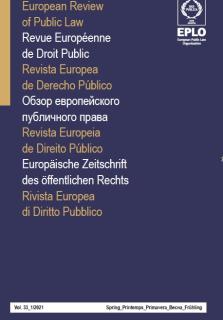
Ukraine’s Part in the European Cross-border Cooperation:
For Economic Integration and Human Development
Ph.D. in Law, Senior Researcher, Leading Research Scientist,
Chief of the Centre for Advanced Studies and Cooperation on Human Rights in Economics,
V. Mamutov Institute of Economic and Legal Research of the National Academy of Sciences of Ukraine
Cross-border cooperation (CBC), as the concerted actions designed to reinforce and foster – on the basis of agreements – economic, social, scientific, technological, ecological, cultural and other relations between the subjects (local and regional authorities) and participants (legal entities, CSOs, etc.) of such relations across the national borders, is considered in the paper as an instrument for promoting the common European values, boosting the European integration and human development in the spirit of SDGs, and the European law further progress. The actual political, legal and economic background of Ukraine’s CBC with other European states is described as having certain benefits and drawbacks. The current Ukrainian legislation on CBC and the relevant practice require improvements. The Madrid Convention and the EU-Ukraine Association Agreement frame the needed enhancement. In cooperation with the CoE and EU member states as well as countries covered by the Eastern Partnership Policy, Ukraine is on the path of the CBC advancement and of socio-economic and human development.
La coopération transfrontalière, en tant qu’actions concertées destinées à renforcer et à favoriser – sur la base d’accords – les relations économiques, sociales, scientifiques, technologiques, écologiques, culturelles et autres entre les sujets (autorités locales et régionales) et les parties prenantes (personnes morales, OSC, etc.) de ces relations au-delà des frontières nationales, est considérée dans cet article comme un instrument de promotion des valeurs européennes communes, de stimulation de l’intégration européenne et du développement humain dans l’esprit des ODD, et de progrès du droit européen. Le contexte politique, juridique et économique actuel de la coopération transfrontalière entre l’Ukraine et les autres Etats européens est décrit comme présentant certains avantages et inconvénients. La législation ukrainienne actuelle sur la coopération transfrontalière et la pratique correspondante doivent être améliorées. La Convention de Madrid et l’Accord d’association UE-Ukraine encadrent les améliorations nécessaires. En coopération avec le Conseil de l’Europe et les Etats membres de l’UE, ainsi qu’avec les pays couverts par la politique de partenariat oriental, l’Ukraine progresse sur la voie de la coopération transfrontalière et du développement socio-économique et humain.





















